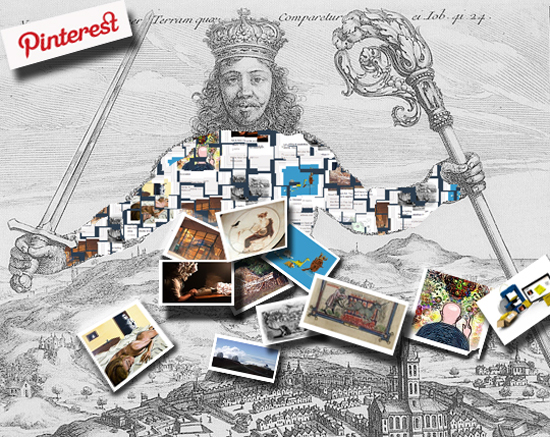 Hacked Leviathan Frontispiece. Image Credit: David A. Harper
Hacked Leviathan Frontispiece. Image Credit: David A. Harper
In the coffee shop where I ‘m writing, there are two large bulletin boards in a high-traffic area (the hallway leading to the restrooms). We all know how bulletin boards and advertising work: once a provocative image draws you in, the text informs you, proselytizes you, or sells something to you. On a well-used board layers upon layers of images vie for attention, each individual post contributing to an unintentional artistic whole. Gathered on the same bulletin board, even the most antagonistic images are put into dialog as the physical wooden frame becomes a conceptual one. We find patterns in the noise. These old-fashioned bulletin boards have been on my mind this week while I explored the high-tech virtual pinboards of Pinterest.
Recent comments
2 years 29 weeks ago
2 years 44 weeks ago
2 years 44 weeks ago
2 years 50 weeks ago
3 years 4 weeks ago
3 years 4 weeks ago
3 years 4 weeks ago
3 years 6 weeks ago
3 years 6 weeks ago
3 years 6 weeks ago